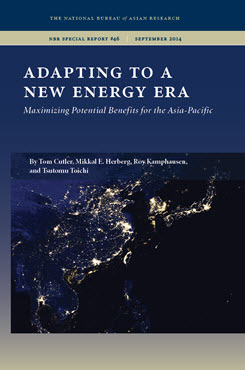Japan's Response to Its New Energy Security Challenges
This is one of four essays in the NBR Special Report “Adapting to a New Energy Era: Maximizing Potential Benefits for the Asia-Pacific.”
EXECUTIVE SUMMARY
This essay examines Japan’s new energy security challenges and assesses its responses amid the country’s ongoing energy policy overhaul and the dramatic changes taking place in global energy markets.
MAIN ARGUMENT
Japan is in the midst of a major shift in its energy mix. As a result of the Fukushima Daiichi nuclear accident of March 2011, the role of nuclear energy in power generation will unavoidably decline in coming years while gas-fired power generation will increase its share. Consequently, it is a pressing issue for Japan to ensure a stable supply of LNG while minimizing the procurement costs. Doing so will require Japan to address not only economic and market questions but key questions for its energy security strategies, such as the implications of growing dependence on Middle East resources and concerns about the freedom of navigation in critical energy sea lanes. With this in mind, Japan could strengthen energy security for itself—and the region—by promoting greater energy cooperation among Asia-Pacific countries, in particular with China, South Korea, and Russia. Additionally, as it is difficult for Tokyo to protect critical energy sea lanes by itself, Japan-U.S. cooperation will be increasingly important for ensuring freedom of navigation. Because energy security is closely linked with national security, diplomacy, economic competitiveness, and climate change, the government should develop a long-term and comprehensive energy strategy to accomplish Japan’s national interests.
POLICY IMPLICATIONS
- If Japan becomes excessively dependent on gas-fired power generation, a new risk factor may arise in the country’s energy security due to the high cost of power generation and the very small LNG stockpile in Japan.
- Depending on U.S. policy and actions toward Syria and Iran, heightened political and social instabilities in the Middle East may call for Japan to enhance its economic assistance as well as its human resource development activities in the Persian Gulf countries.
- Additional gas export projects out of Russia provide a good opportunity to build a win-win relationship between the two countries, given that Russia is seeking to expand into the Asian market and Japan aims to reduce procurement costs and diversify its supply sources.
Tsutomo Toichi is a Senior Advisor for Research at the Institute of Energy Economics Japan.


